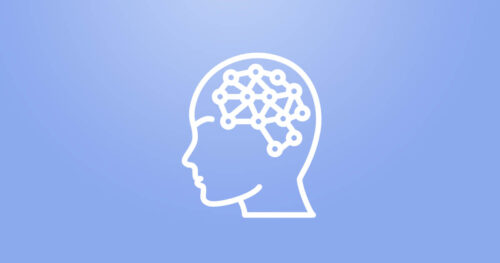Generative Artificial Intelligence (AI) engineering with Azure Databricks uses the platform’s capabilities to explore, fine-tune, evaluate, and integrate advanced language models. By using Apache Spark’s scalability and Azure Databricks’ collaborative environment, you can design complex AI systems.
-
Learn how to harness the power of Apache Spark and powerful clusters running on the Azure Databricks platform to run large data engineering workloads in the cloud.
-
Generative Artificial Intelligence (AI) is becoming more accessible through comprehensive development platforms like Azure AI Foundry. Learn how to build generative AI applications that use language models to chat with your users.
As of 13th June, the AI-102 Develop AI Solutions in Azure course has been updated and restructured by combining together these five 1-day AI courses into a single, comprehensive learning experience:
- AI-3016: Develop generative AI apps in Azure
- AI-3026: Develop AI Agents on Azure
- AI-3002: Develop AI information extraction solutions in Azure
- AI-3003: Build a natural language processing solution with Azure AI Services
- AI-3004: Build an Azure AI Vision solution with Azure AI services
This update provides learners with a more cohesive and in-depth journey through key AI concepts and applications.
-
-25%
AI-102: Develop AI solutions in Azure is intended for software developers wanting to build AI infused applications that leverage Azure AI Foundry and other Azure AI services.
Topics in this course include developing generative AI apps, building AI agents, and solutions that implement computer vision and information extraction. The course will use C# or Python as the programming language.
As of 13th June, the AI-102T00: Develop AI Solutions in Azure course has been updated and restructured to provide learners with a more cohesive and in-depth journey through key AI concepts and applications. This update brings together five 1-day AI courses into a single, comprehensive learning experience:
-
A Solutions Architect is an expert in many categories. They should have hands-on experience in multiple industries and across several disciplines. They can master a variety of hardware platforms including mainframes, distributed platforms, desktops, and mobile devices. Akin to that, they should also possess skill and understanding of a variety of Operating Systems. A broad and deep understanding of Databases is also required.
The IASA Solutions Architect course develops an architect’s skills to effectively function as a project delivery architect for midsize to large projects using common techniques and procedures.
-
The Software Architect has mastered the value, use, development and delivery of intensive systems.
They have developed skills in software development lifecycles, software engineer in and software design. Software architect are responsible for the value generated from a particular software system or system of systems.
The course builds on the key skills and capabilities developed during the associate foundation courses. During the course you will explore the software engineering and application development practices that distinguish you as a software architect. The program builds on the IT environment skills and design skills learned in the foundation associate courses.
-
The Infrastructure Architect provides strategic uses of infrastructure, network and operations as an asset.
They create and deliver technology strategies to optimise as an asset. They create and deliver technology strategies to optimise the use of technology resources related to hardware and physical systems.
lasa Infrastructure Architecture Training provides a platform from which professional infrastructure architects develop a mastery of network, computing platform and operations to guide the organization to valuable investments in hardware and platform. By the end of this course, students will be equipped with necessary skills, framework and tools required to facilitate successful management and development of infrastructure architecture.
-
The Information Architect has mastered the management of information across and within their industry.
They work to ensure that information is used to the best advantage of their organisation or customer, and that expected information quality attribute levels are achieved.
Information architects develop deep skills in information as one of an organisation’s key assets. They work in areas ofpresentation and information usage such as devices and interfaces as well as Storage and retrieval. In addition, information architects are key to partner and be part of the internal integration. This course provides deep coverage of each of these areas.
-
Business architecture is an essential aspect of any organisation that aims to improve its operational efficiency, customer satisfaction, and profitability. It involves developing a comprehensive understanding of the organisation’s processes, capabilities, and people to identify and implement strategic improvements.
This course is designed to provide students with the knowledge and skills necessary to develop a robust business architecture that aligns with the organisation’s objectives.
-
ArchiMate, The Open Group Standard, is an open and independent modeling language for enterprise architecture that is supported by different tool vendors and consulting firms.
ArchiMate® provides instruments to enable enterprise architects to describe, analyse and visualise the relationships among business domains in an unambiguous way.
Upon completion, participant can enroll in the following certification exam:
- ArchiMate 3 Foundation
The purpose of this certification is to provide validation that the participant has gained knowledge of the notation, terminology, structure and concepts
of theArchiMate® modeling language. The learning objectives at this level focus on knowledge and comprehension. - ArchiMate® 3 Practitioner
The purpose of this certification is to provide validation that the participant has gained knowledge as in Level 1 and has the capability to use the ArchiMate® language for modeling.
- ArchiMate 3 Foundation
-
AC helps you understand Business Technology Strategy (BTS) and Iasa IT Architecture Body of Knowledge (ITABoK).
Find out how to apply skills from the five foundational pillars of ITABoK as well as distinguish key architecture concepts, scopes, principles, contexts and roles. Adopt industry frameworks and components alongside basic IT Architect skills and define values, as well as create IT’s business capabilities. Find out what it takes to set up an IT Architecture Office (ITAO) and how to run its day-to-day tasks as an IT Architect. Finally, learn how to select and priorities IT projects, assign resources for them, work hand in hand with the Project Management office and present technology values to stakeholders.







